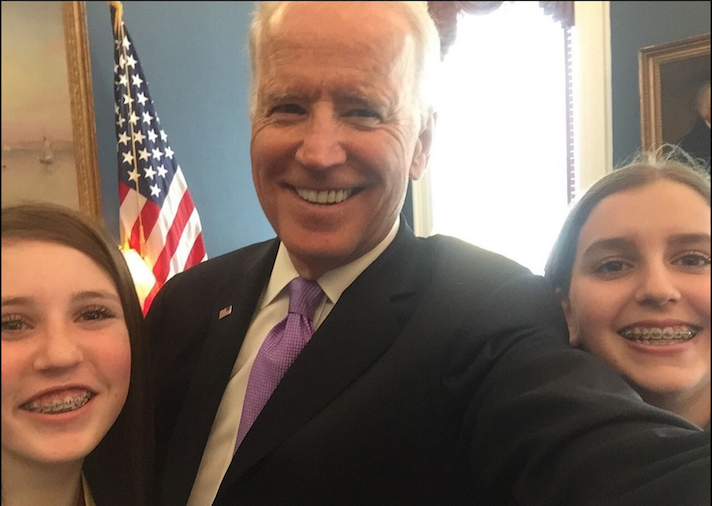 Last week, the Obama administration invited teens from around the country who had won various prestigious science contests to present their work at the sixth White House Science Fair, the final such gathering of President Obama's administration. Health tech had a significant presence at the conference, with at least 10 health-related projects including three app or connected device projects.
Last week, the Obama administration invited teens from around the country who had won various prestigious science contests to present their work at the sixth White House Science Fair, the final such gathering of President Obama's administration. Health tech had a significant presence at the conference, with at least 10 health-related projects including three app or connected device projects.
"There’s nothing that makes me more hopeful about the future than seeing young people like the ones who are here -- and they come from all over the country, they come in all shapes and sizes," Obama said at the event. "All of you are showing the rest of us that it’s never too early in life to make a difference. You teach us about the power of reason and logic, and trying things and figuring out whether they work, and if they don’t, learning from that and trying something new. And you remind us that, together, through science, we can tackle some of the biggest challenges that we face. Whether you’re fighting cancer or combatting climate change, feeding the world, writing code that leads to social change, you are sharing in this essential spirit of discovery that America is built on."
One mobile health-focused team consisted of Lydia Mindermann, 13, and Andrea Richard Kasson, 14, two Minnesotan teens who built an app called "Mayo Free Time" for patients at the Mayo Clinic. The app helps patients locate hospital activities to fill their free time between appointments and treatments. It won the Technovation challenge last year and, according to local Minnesota paper the Post-Bulletin, the Mayo Clinic is interested in developing the app and helped pay for the team's trip to Washington, D.C.
Another health tech project, by Maya Varma, a 17-year-old from San Jose, California, was singled out by Obama in his speech.
"Maya is using a low-cost microcontroller, software freely available on the Internet, and a smartphone, and she designed a tool that allows people with asthma and other lung diseases to diagnose and monitor their own symptoms," he said. "So her goal was to use smartphone technology to make diagnostic tests for all kinds of diseases a lot cheaper. 'My aspiration is not only to create the next big thing in my field one day,' Maya says, 'but also to make it accessible to more than a privileged few in the world.'"
Varma was an Intel STS finalist with her project, which included a 3D-printed spirometer as well as an Android app to create a low-cost diagnostic device for respiratory diseases.
Another participant in the fair created a motivational app and wearable device for physical therapy patients called MotivateMe. Diana Veronin, a 15-year-old from Hillsboro, New Jersey, created a wristband to motivate stroke patients to do their rehabilitation exercises frequently and correctly. A therapist can program specific exercises for the patient into the device, which will then use the accelerometer to record movement data and use machine-learning software to analyze movement patterns, ascertaining if a patient is doing their exercises correctly.
Other health projects outside the realm of digital health included a new approach to transporting vaccines, research on low-dose radiation, research on early cancer detection, kidney failure prevention, 3D-printed prosthetics, and a new test for Ebola. The president also mentioned the latter, a project by 17-year-old Connecticut resident Olivia Hallisley, in his speech.
"Olivia said after she was working on this Ebola diagnostic tool, 'My generation has been raised with an awareness that we're part of a global community. It’s everybody’s responsibility to take a proactive approach and think of solutions.' She is right," Obama said. "I want you to call up Congress and tell them your thinking on that."
















